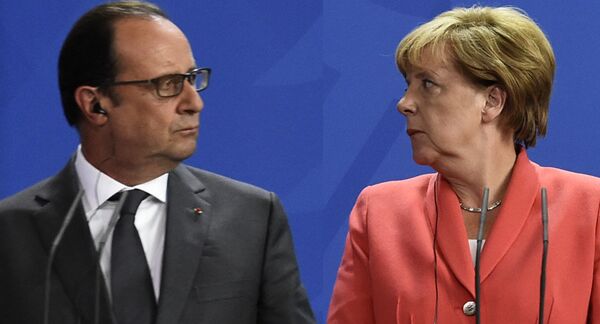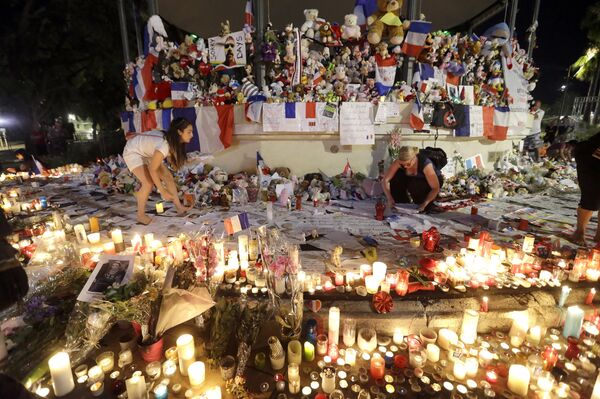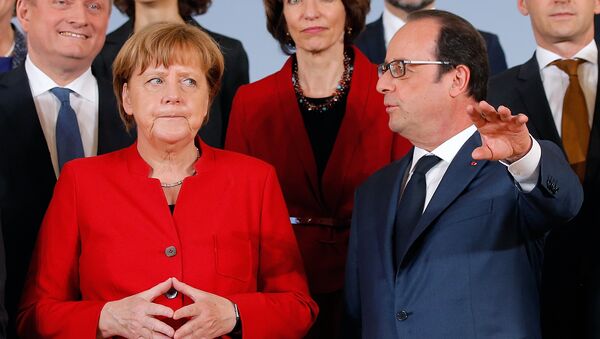Merkel and Hollande have much in common, although not necessarily for the reasons they would like: both are facing elections next year which they are far from certain to win and both are facing the break-up of the EU as they know it.
The Paris-Berlin axis has been at the heart of the EU dream from the outset, both countries being founding members of the original European Steel and Steel Community — which has since morphed into the European Union.

The prospect of Britain leaving the EU — Brexit — at the same time as the EU is facing its own serious divisions will bring to the fore major questions about the whole direction of the union. But will Merkel and Hollande be there to see it through?
Merkel's Nightmare
Merkel lives for the European dream as she has had first-hand experience of a divided Europe. She was born in 1954 in Hamburg — then in West Germany — but the family soon moved to East Germany, where her father — who had converted to Lutheranism — had been appointed as pastor pastorate at the church in Quitzow, near Perleberg in Brandenburg.
Having seen the reunification of Germany — as well as the stunningly brave decision to match the Ostmark and Westmark on a Mark-for-Mark basis for wages, prices and basic savings which put an enormous strain on the economy — Merkel is passionate about a joined up European family.
Is this the beginning of the end for the #Merkel era? Merkel sure won't like the answer: https://t.co/Ma6DS1r84l pic.twitter.com/h2delRzWF9
— Gatestone Institute (@GatestoneInst) September 15, 2016
However, she is facing difficulties both at home and abroad — mainly over her immigration policy, under which she drew plaudits initially for opening Germany's doors to Syrian refugees, but now faces a backlash because of the sheer numbers reaching Germany, where Islamophobia is on the rise. Her popularity has plunged and there has been a huge rise in right-wing nationalism.
Abroad, her calls for other EU member states to take in refugees on a quota basis have been rebuffed by many — especially in eastern Europe. The migrant crisis has led to many countries erecting border fences or putting in border controls, which has blown Schengen apart. Her EU-Turkey migrant deal has also caused major divisions within the EU.
She is also under pressure over the Eurozone single currency area, where she is pushing many Mediterranean states — most importantly Greece — into austerity measures in order to maintain stability of the currency, which is dividing the Eurozone north and south.
Hollande's Headache
Meanwhile, Hollande is facing problems of his own — not least terrorism and the general feeling that the free movement of people throughout the EU — under Schengen — was partly to blame for the ability of terrorists to pass freely into Europe.

He is also facing a rise in Islamophobia and the increase in support for right-wing nationalism, mainly from Marine Le Pen's Front National. There have been calls for a "Frexit" referendum, following the Brexit referendum after which the UK decided to leave the EU.
France has been crippled by multiple strikes and demonstrations for months. His popularity is the lowest in the fifth republic.
Both leaders face elections next year and will be distracted in the coming months from the problems of the EU by domestic politics. If they both lose power, because of a rise in anti-EU sentiment in both countries, the face of Europe could change altogether.




